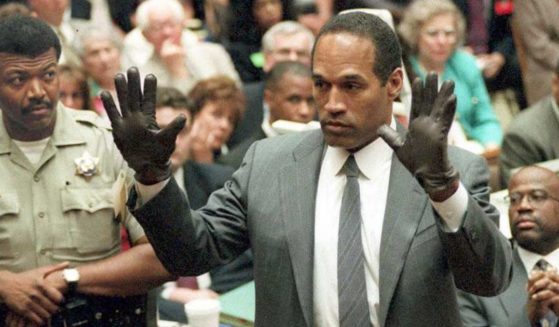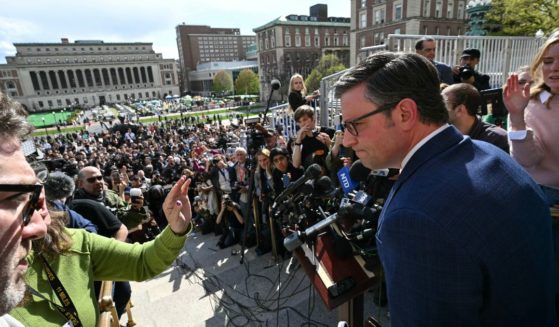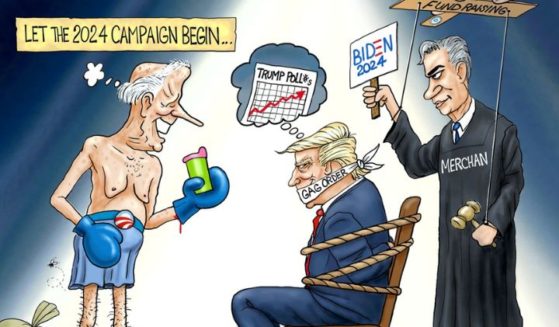NY Times Reporters Insist Flawed Kavanaugh Story Is Not Their Fault, Claim Editors Removed Key Facts
As an explanation goes, it doesn’t explain much at all.
Two New York Times reporters made an appearance on MSNBC on Monday to discuss the newspaper’s handling of its latest smear against Supreme Court Justice Brett Kavanaugh and tried to blame a damning omission in the piece on sloppy editing — not on any intention to mislead readers.
But that just raises more questions — for example, why did the same reporters make the same omission in a radio interview last week?
In the interview Monday with Lawrence O’Donnell — that paragon of journalistic virtue who’s done his own share of baseless smearing recently — Times reporters Robin Pogrebin and Kate Kelly claimed the article that was published online Saturday left out basic facts about an accusation against Kavanaugh because editors removed them.
Plot thickens.
Robin Pogrebin and Kate Kelly claim that the qualifier about the other alleged Kavanaugh accuser not remembering an incident at Yale was included in the initial NYT draft but removed. pic.twitter.com/p9wUTnFyM1— Chuck Ross (@ChuckRossDC) September 17, 2019
As most readers probably know by now, it was a doozy: The report published by The Times claimed that at a college party at Yale in the 1980s, a drunken Kavanaugh had taken his pants off and that friends had somehow managed to push his penis into the hand of an unwilling woman.
The account was from an adapted excerpt of a book Pogrebin and Kelly have written about the Kavanaugh confirmation process.
What The Times’ story left out was the fact that, as the book noted, the woman in question did not talk to the authors and has told friends she has no recollection of the incident. That’s a huge element of the story, one that would tell most readers the whole tale is garbage.
The Times did not take any action to correct the matter until late Sunday evening, when it appended an editor’s note that stated only what had been left out. There was no explanatory note of the kind The Times often uses, such as “due to an editing error” or something similar.
But an “editing error” is what it was, Pogrebin and Kelly said on MSNBC.
“So somewhere in the editing process, those words were trimmed,” O’Donnell said.
Adapting the excerpt to comply with The Times’ style against using the names of alleged sexual assault victims might have led an editor to take out the whole passage, Pogrebin said.
“I think what happened actually was that we had her name and The Times doesn’t usually include the name of the victim,” she told O’Donnell. “And so I think in this case the editors felt like maybe it was probably better to remove it. And in removing her name, they removed the other reference to the fact that she didn’t remember it.”
Of course, editing mistakes happen in every part of the publishing field, but there are a couple of parts of the explanation that raise questions.
If the omission was the result of a good-faith error, why did it take so long for the “mistake” to be corrected and the editor’s note to be appended to the story? The original version was published Saturday. The note was not added until late Sunday.
Also, and possibly more important, Pogrebin’s answer to O’Donnell’s question about what role the reporters had played in the decision to attach the editor’s note was dubious.
“We felt like there was so much heat, there’s so much — everyone has been seizing on various aspects of this that we certainly didn’t want it to be an issue anymore and we certainly never intended to mislead in any way,” she told O’Donnell. “We wanted to give as full of a story as possible.”
“We felt like there was so much heat”? At a reputable news organization, the amount of “heat” coming from the public isn’t generally a factor when confronted with making a decision about correcting an error that destroys the whole basis of a story.
There’s no way of knowing exactly when the authors became aware of the problem with The Times article, but there is a way to know exactly how strongly they felt about how it should be corrected. And clearly, the “amount of heat” that was being raised played a role.
A reasonable conclusion from that is The Times wasn’t so concerned with correcting the record as it was about getting caught in the first place.
There were a lot of social media users who weren’t buying the “explanation.”
Lawrence: so here’s how I’m going to ask the question. Slanderers: Ok, we will answer together because that will seem like we’re telling the truth. ?
— Driver Joe (@DriverJoe5) September 17, 2019
Gee why would editors take out very important, factual information?
Oh right…to lie or mislead people!
— random thoughts (@musings_n) September 17, 2019
This is rich. The fake reporter who just 2 weeks ago had to apologize for his own fake reporting now interviews the 2 fake NYT reporters for their fake reporting. ?♀️?♀️
— Madeline (@Madelin56338477) September 17, 2019
These two women are a disgrace to real victims. As a woman. These two should be prosecuted for making false allegations against Judge K. Women we can’t let other women get away with distorting the truth and facts without repercussions. This hurts real victims. This was political.
— Joni Mandel (@JajsaArthur) September 17, 2019
That last one sums it up. What Pogrebin and Kelly did wasn’t journalism, it was a political attack on a Supreme Court justice the left loathes. Every American who was awake during the 2018 Kavanaugh confirmation hearings should know that liberals in the media and the Democratic Party were willing to stoop to outrageous lies to smear Kavanaugh’s character, and that clearly hasn’t stopped.
And finally, there’s the fact that the omission wasn’t new to Pogrebin and Kelly’s efforts to promote their book.
Mollie Hemingway, the Federalist writer and co-author of a truly outstanding book about the Kavanaugh confirmation fight, “Justice on Trial,” reported in a tweet early Monday that Pogrebin and Kelly also did an interview on NPR where they made the same omission as The Times excerpt did.
The interview, with Terry Gross of “Fresh Air,” was recorded Thursday, according to NPR (the transcript is here). In it, the two Times reporters told Gross the story recounted by Democratic activist and Washington lawyer Max Steir but didn’t bring up the points about how they never actually interviewed the alleged victim, or that the woman has no recollection of it.
“In response to a question about any other women coming forward, the authors excitedly tell Max Stier story, never mentioning that they never spoke to the woman or that she denied it through friends,” Hemingway tweeted.
“Difficult to blame this on editing.”
It’s difficult for anyone with common sense to accept The Times explanation at face value. For anyone with a background in newspapers, it’s impossible.
Because as an explanation goes, it doesn’t explain much at all.
Truth and Accuracy
We are committed to truth and accuracy in all of our journalism. Read our editorial standards.












